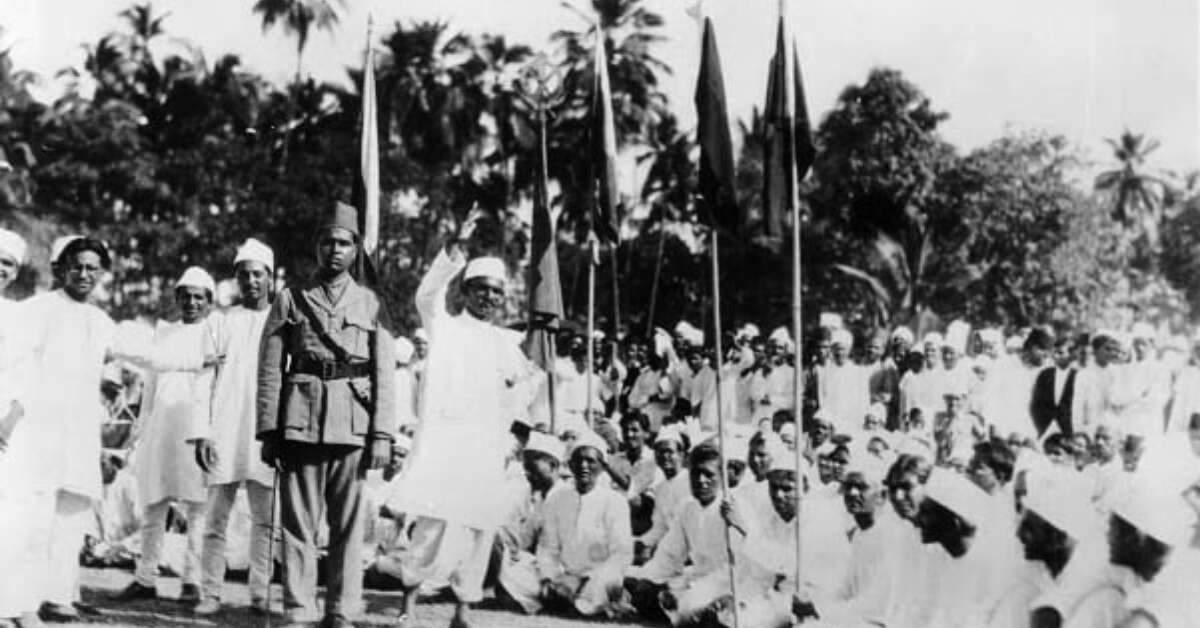

Its 15 August 2024, and India is celebrating its 78th Independence Day. A long and hard struggle has shaped India’s fight for independence, and Visakhapatnam has been a proud part of it. Until 15 August 1947, the happenings of Vizag were marked by protests, satyagrahas, individual acts of resistance, and more to challenge British rule. On this Independence Day in 2024, here are 9 significant moments from the Freedom Struggle Movement in Visakhapatnam that strike a patriotic chord:
One of the earliest signs of resistance against British rule in Vizagapatam dates back to October 13, 1780, when a group of Indian sepoys revolted against the Englishmen.
During the confrontation, the sepoys killed British officers in charge, including Lieutenant Crisps, Cadets Kingsford Venner, Robert Rutherford, and the paymaster, while also injuring Captain Maxtone and Captain Lane. However, the rebellion failed and was thwarted when the leader, Shaik Mohammed, was captured and hanged.
Political awakening in the Vizagapatam district gained momentum with the Vande Mataram movement in 1906, led by Bhupathiraju Venkatpathi Raju. The movement gathered strength after public meetings at the Town Hall, addressed by leaders like Bipin Chandra Pal and N S Ramaswami. Marepalli Ramachandra Sastry, known as Kavi Garu, bolstered the movement by opening a Swadeshi shop.
In 1920, the Town Congress Committee was established. Kavi Garu was the President, Butchi Sundara Rao and Kothandaramaswamy were the Joint Secretaries, and Bangarayya was the Treasurer.
Responding to Gandhi’s call, the committee organized large-scale khadi sales and door-to-door campaigns. The ‘prabhat bheri,’ or early morning marches, became a regular part of the political awakening. Renowned leaders include Digumarthi Venkata Ramaswamy, Janakibai, V J Gupta, Kavi Garu, and Tenneti Viswanadham lef the marches.
In 1921, Mahatma Gandhi and Mohammed Ali stopped at Waltair en route to Calcutta. At the Waltair Railway Station, Mohammed Ali addressed the gathered crowd but was arrested in Waltair itself, causing unrest among the people. Nationalist Muslim Razak protested strongly, attempting to prevent the police from taking Ali away.
Between 1922 and 1924, the district witnessed the remarkable Rampa Rebellion led by the iconic Alluri Seetharamaraju. To acquire firearms for his under-equipped tribal followers., Seetharamaraju launched raids on imperial police stations in and around a in and around areas of Annavaram, Addateegala, Chintapalle, Dammanapalli, Krishna Devi Peta, Rampachodavaram, Rajavommangi, and Narsipatnam.
However, he was eventually captured by the British in the forests of Chintapalli, tied to a tree, and shot dead without trial.
On April 28, 1929, Gandhi addressed a meeting on the beach, promoting the use of khadi. Among the attendees was 10-year-old K Sarojini, daughter of Gandhian K S Gupta, who handed over her gold bangle to Gandhi in support of the freedom movement.
Following Gandhi’s orders, the Salt Satyagraha began in Visakhapatnam in April 1930, taking the freedom struggle to the next level.
A group of leaders, including Kavi Garu, Digumarthi Venkata Ramaswamy, Tenneti Viswanadham, Kolluru Suryam Gupta, Bhamidipati Chinayagnanarayana Sarma, and Digumarthi Janakibai, marched from Vizianagaram to the beach near the Town Hall to manufacture and auction salt.
Except for Janakibai, all the leaders were arrested. She took over the leadership, and the Tashildar Kothuru Paparao had to go so far as to prick her hand to force her to drop the salt. Janakibai joined her husband in prison, where she gave birth to their first child.
A volunteer camp, Congress Sibiram, was established in the Woodyard Street firewood depot, owned by Tekumalla Seetharamaswami, behind the Canadian Baptist Mission Church. Kavi Garu served as the first director until his arrest, when Pusapati Butchi Seetharama Raju took over.
In 1932, during the second Satyagraha, Kapuganti Chidambaram took over leadership after Kavi Garu’s arrest. The police made an example of him by marching him from the Hindu Reading Room to the One Town Police Station, beating and kicking him along the way. Despite the brutal treatment, Chidambaram continued chanting “Vande Mataram” and “Gandhiji ki jai” until he lost consciousness near the police station.
In 1933, Gandhi’s visit to Town Hall inspired a movement among Andhra University students, who staged a mock parliament and donned Gandhi caps in defiance. Thirty students, led by Lanka Sundaram and K V Gopalaswamy, who later became the Registrar of Andhra University, were suspended for their actions, marking yet another chapter in Vizagapatam’s rich history of resistance.
When it comes to the broader Indian Freedom Movement, the struggle in Visakhapatnam is a less-known narrative compared to others.
However, the timeline of events certainly proves that our city has been a strong and brave one, and any Visakhapatnam-born person would take the utmost pride in their ancestry. We hope you remember and cherish the sacrifices of our freedom fighters on this Independence Day in 2024!
Stay tuned to Yo! Vizag website and Instagram for more city and news updates.
This post was last modified on 15/08/2024 3:08 pm
It was Lou Brutus who once said "Music always sounds better on Friday." Similarly, true…
The Secunderabad - Visakhapatnam Vande Bharat Express (20707/8) is set to enhance its capacity by…
In a significant boost to infrastructure development, Rail Vikas Nigam Limited (RVNL) has secured a…
Andhra Pradesh Urban Development Minister Narayana has revealed that the Visakhapatnam Metropolitan City Authority is…
The "popular" buildings and landmarks of a city tend to hold many stories and are…
Pinterest is a treasure trove of aesthetic and pleasing fashion trends. From chic and chunky…
Leave a Comment